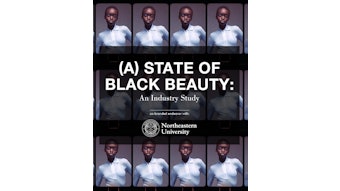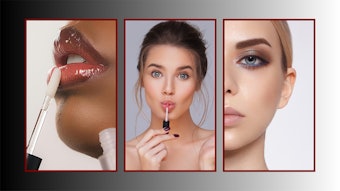
Sam Farmer of Samuel Farmer & Co Ltd will lead a session at in-cosmetics Global on ‘Teenage personal care – The gender agenda’ on Wednesday 3 April at 16:00. The session will explore the market to date and the next steps in its evolution; the nuances of using gender segregation and key points in marketing personal care products to teenagers. For more information on the in-cosmetics Global 2019 education programme, visit: https://www.in-cosmetics.com/global
Millennials have been the apple of the beauty industry's eye for some time, however, the teenage consumers of Generation Z are proving to be the new industry darlings. And keeping these consumers satisfied may be more challenging than appeasing those in the generation before them.
Global Cosmetic Industry consulted Sam Farmer, of Samuel Farmer & Co Ltd, about teen consumers' gender attitudes, the pitfalls of getting marketing wrong and how brands can build trust through their products.
Global Cosmetic Industry: How can personal care brands address teen’s gender attitudes?
Sam Farmer (SF): It isn’t appropriate for all brands to address as there is the potential to cause confusion and, as such, it is important to establish the right intentions and reasons before attempting to target teenage consumers. The category is complicated, nuanced and requires brands to understand the issues and opinions of young adults. Teenagers today have a relaxed and accepting attitude towards gender and how others choose to define themselves. Gay marriage, gender fluidity and equal rights are now part of their everyday lives.
Personal care products are relied upon to perform a basic but essential task and are accepted into teenagers' private living spaces. Trying to define who young adults are or how they should behave is old fashioned. Instead, brands are encouraged to target efficacy instead of insecurities and place the focus on the product and not the intended gender of the consumer.
Brands shouldn’t overthink it. If a brand is truly engaged with a particular message, this will come across in their communication. Bringing out a range of products in an attempt to be part of a 'trend' instead of leading the market with a strong message risks a real struggle for attention.
Lastly, absorb everything the consumer is doing. The teenage category is a complex, fickle and ever-changing sector. Listen, think and act accordingly.
Global Cosmetic Industry: What are the pitfalls of getting it wrong?
SF: Having observed the recent ‘mixed’ reaction to the Gillette advert and the recent change in direction for Lynx, the pitfalls of getting it wrong can be damaging and long-lasting. The messages and images a company uses should originate from the brand’s authentic core values or they risk being viewed with some cynicism. In many cases, the stereotypes now being challenged are exactly those created by some of these brands in the first place.
Consumers are also now more vocal in their opinions, with social media allowing everyone to have a say on what a brand is doing. Changing direction on a sixpence to the exact opposite of what a brand’s communication has been focussed on for decades is risible. Consumers are skeptical and suspicious of such strategies, and brands risk their audience becoming disenchanted if their communications are not grounded in an authentic value or belief.
Global Cosmetic Industry: What are some of the ways trust can be built through marketing and thoughtful product design?
SF: Brands should focus on changing the way young adults interact with the industry by challenging the whole concept of the language and images used. To do this, brands must make a decision and take the lead, not simply follow someone else’s path. They must ‘walk the walk not just talk the talk.’ From brand ambassadors to sponsorship, the actions a brand undertakes as part of its strategy should reflect its overall message, ethos and identity.
To truly build trust through marketing and thoughtful product design, brands need to identify their own audience. In a saturated, competitive and mercurial business, being honest and straightforward is rare and works to build trust through consistent and clear communication, which is crucial for success.










